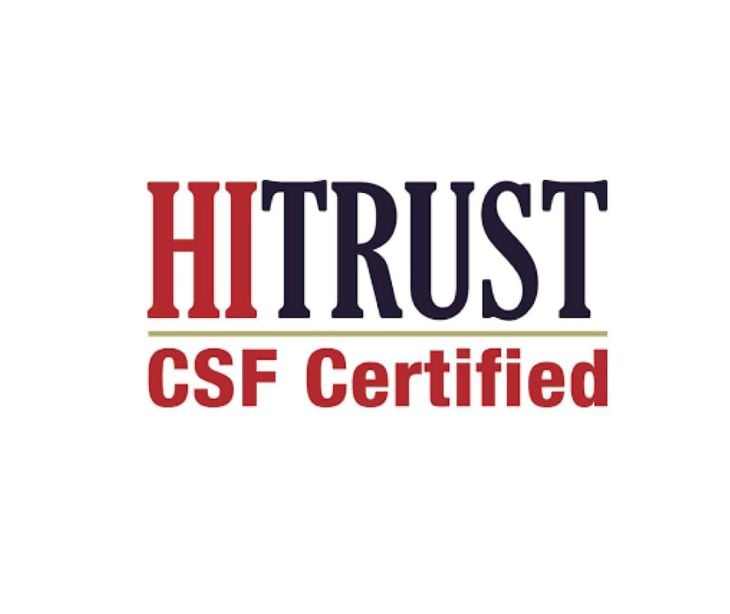
HITRUST and SOC 2 certifications differ in their focus and scope. HITRUST applies to healthcare organizations. SOC2 certifications have a broader scope and are often sought by data centers and cloud service providers.
SOC 2 Certification
What is a SOC 2 certification?
SOC stands for "Service Organization Control." A SOC 2 certification is a type of audit and certification process that evaluates and verifies the controls and safeguards implemented by a service organization. According to a paper published by the University of Mississippi, “SOC 2 reports are intended to assist management of the user entities in carrying out their responsibility for monitoring the services provided by a service organization.” These reports protect customer data and ensure the security, availability, processing integrity, confidentiality, and privacy of that data.
What are its main functions?
- Assurance: It demonstrates the organization's commitment to security, availability, processing integrity, confidentiality, and privacy.
- Risk management: The certification process involves a thorough evaluation of controls, allowing organizations to identify potential vulnerabilities and take corrective actions to address them.
- Competitive advantage: Many customers, particularly those in regulated industries or those that handle sensitive data, prioritize working with service organizations that have obtained SOC 2 certification. It gives customers confidence that their data will be managed securely.
Who performs it
SOC 2 certifications are performed by independent third-party auditing firms. These auditing firms are typically certified public accounting (CPA) firms that specialize in conducting SOC 2 audits and assessments. The American Institute of Certified Public Accountants (AICPA) is the governing body that establishes the standards and guidelines for SOC 2 audits.
Why it matters
SOC 2 certification demonstrates a service organization's commitment to data security, privacy, and operational excellence. It provides assurance to customers, meets their requirements, addresses parts of regulatory compliance, improves risk management, and builds customer confidence. Note that while SOC 2 certifications can help demonstrate compliance with certain regulations, they are not a guarantee of full regulatory compliance with regulations like HIPAA.
Related: What physical safeguards are required by HIPAA?
HITRUST certification
What is a HITRUST certification?
According to the Comparative Law Review, “The HITRUST (Health Information Trust Alliance) certification is a comprehensive approach designed specifically for the healthcare industry to manage and safeguard Protected Health Information (PHI) effectively. This is the dominant certification framework in the US health industry.”
The HITRUST Common Security Framework (CSF) is a set of controls and requirements derived from multiple industry standards and regulations, like HIPAA, National Institute of Standards and Technology (NIST), International Organization for Standardization (ISO), and others. It provides a framework for organizations to assess, implement, and manage security and privacy controls to safeguard healthcare data.
Related: What does HITRUST CSF certification mean?
What are its main functions?
Security policies, procedures, and standards: The presence of comprehensive security policies and procedures that define how the organization protects health information and align with industry best practices and regulatory requirements.
Incident management: The organization's ability to detect, respond to, and recover from security incidents or breaches involving health information, including incident response plans, breach notification processes, and post-incident analysis and improvement.
Physical and environmental security: The implementation of physical safeguards to protect the physical assets and infrastructure that house health information, such as data centers, servers, and storage facilities.
Who performs it?
HITRUST certification assessments are conducted by authorized independent assessors trained and approved by HITRUST. These assessors are typically third-party organizations or consulting firms with information security and privacy expertise.
HITRUST has established the HITRUST CSF Assessor Program, which provides training and certification to individuals and organizations interested in becoming HITRUST assessors. To become authorized assessors, these individuals and organizations undergo a rigorous training program, which includes understanding the HITRUST CSF, assessment methodologies, and reporting requirements.
Why it matters
HITRUST certification demonstrates an organization's commitment to maintaining a strong security and privacy posture. By achieving HITRUST certification, healthcare organizations enhance their reputation and assure partners, stakeholders, and customers that the organization has met rigorous security standards. It also helps organizations meet and demonstrate compliance with various regulatory requirements, such as HIPAA and other federal and state regulations.
Related: Paubox renews HITRUST r2 certification to 2025
Deciding between SOC 2 and HITRUST certifications
- Industry requirements: SOC 2 is a broader certification applicable to various industries, whereas HITRUST is specifically designed for the healthcare industry. If your organization operates in the healthcare sector, HITRUST may be a more suitable choice due to its industry-specific focus.
- Scope and coverage: SOC 2 primarily focuses on the security, availability, processing integrity, confidentiality, and privacy of data within an organization's systems and services. HITRUST, on the other hand, encompasses a comprehensive framework that addresses security and privacy controls specifically tailored to the healthcare industry.
- Third-party assurance: SOC 2 certifications often involve audits conducted by independent auditors to assess an organization's controls. This can provide assurance to customers and partners about the effectiveness of your organization's security and privacy controls. HITRUST also offers third-party assurance but is more explicitly focused on the healthcare industry and addresses specific industry requirements.
- Compliance requirements: SOC 2 may help demonstrate compliance with general data protection and security regulations, such as the Payment Card Industry Data Security Standard (PCI DSS). HITRUST, on the other hand, is explicitly designed to address healthcare industry regulations, including HIPAA.
- Customer expectations: Some customers, particularly those in the healthcare industry, may specifically require or prefer HITRUST certification to ensure their sensitive health information is adequately protected.
FAQs
What is a HITRUST Readiness Assessment?
A HITRUST Readiness Assessment helps organizations understand their current risk posture and reveal potential gaps, preparing them for a Validated Assessment.
What is the HITRUST MyCSF®?
The HITRUST MyCSF® is a SaaS platform that can streamline efforts and help organizations get ready for a Validated Assessment, while ensuring the results provide reliable information about the organization’s ability to mitigate risk and meet its compliance obligations.
Is an interim assessment required?
An interim assessment is required at the one-year mark to maintain certification if certification is obtained as part of the r2 Assessment. It is not required if certification was obtained via the e1 or i1 Assessment.
Related: HIPAA Compliant Email: The Definitive Guide
Subscribe to Paubox Weekly
Every Friday we'll bring you the most important news from Paubox. Our aim is to make you smarter, faster.




